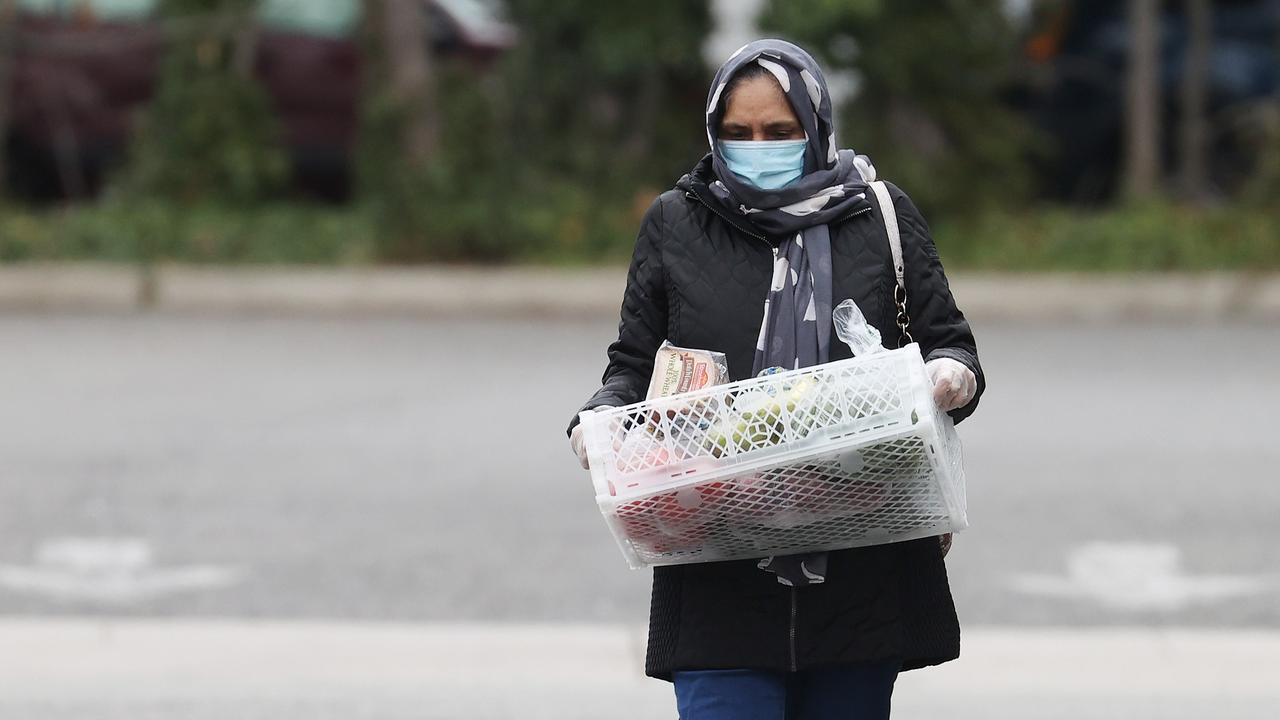Coronavirus prevention: How long virus survives on surfaces
Researchers have figured out how long coronavirus can survive on surfaces – and the one reason why wearing gloves is a bad idea.

From cardboard to clothing, some of the world’s top virus experts have figured out how long coronavirus can survive on surfaces – and the one reason why wearing gloves will do you more harm than good when it comes to protecting you from COVID-19.
The potentially-deadly virus, which has infected more than 5000 Australians and nearly one million people worldwide, can live for as long as three days on some surfaces, according to the study published by the New England Journal of Medicine.
The risk of touching the materials and actually becoming infected, the researchers said, is still low – but is a stark reminder that people need to be exercising proper hand and oral hygiene.
“What we need to be doing is washing our hands, being aware that people who are infected may be contaminating surfaces,” microbiology professor at Georgetown University, Julie Fischer, told AP.
RELATED: Follow the latest coronavirus updates

HOW LONG COVID-19 SURVIVES ON THESE SURFACES:
• When the virus is attached to airborne droplets like moisture from coughs and sneezes, fog, dust or medical gases, it can survive up to three hours.
• On copper surfaces like drawer handles, the virus can last up to four hours.
• On hard non-porous surfaces like metal doorknobs, plastic or metal buttons, handrails, light switches, keyboards and desks, the virus lasts the longest – between two and three days.
• On fabrics like clothing or gloves, the virus can survive for 24 hours.
The researchers found that if you disinfect surfaces that may be contaminated, the virus can be eradicated within a minute – but that it’s important to remember touching a surface that’s contaminated won’t actually make you sick.
It’s only if you touch your face afterwards the cells of the virus can enter your body through your eyes, nose or mouth.
That’s why, they said, wearing gloves to protect yourself from touching any contaminated surfaces can actually do more harm than good, especially because the virus can survive on materials for 24 hours.
If you touch your face while still wearing gloves, you can still transfer the virus – and you also can’t wash gloves as regularly as you might wash your hands.
RELATED: Can coronavirus spread through food?
While near-total lockdowns have been imposed in multiple countries around the world, the World Health Organisation’s (WHO) advice has remained unchanged since the start of the global outbreak in China three months ago: washing your hands, keeping your distance and not touching your face are the best virus prevention strategies.
“If people cannot stop touching their face, gloves will not serve a purpose,” Amesh Adalja from John Hopkins Centre for Health Security told AFP.
“Gloves are not a substitute for washing your hands.”
Dr Adalja added that surgical gloves should only be used in a medical setting.
A virologist at Imperial College London told The Independent that they worry items like gloves give a “false sense of security” and washing hands is a far better precautionary measure.
RELATED: Reason why we can’t stop touching our faces
The WHO have repeated similar advice to people who have taken up wearing face masks in public, telling them it’s only necessary if you are infected or someone you are caring for is – in which case, the advice is to stay home whenever possible.
“There are limits to how a mask can protect you from being infected and we’ve said the most important thing everyone can do is wash your hands, keep your hands away from your face, observe very precise hygiene,” said WHO’s emergencies director Mike Ryan.
To help protect yourself from becoming infected with coronavirus, you should:
• Regularly and thoroughly clean your hands with an alcohol-based hand rub or wash them with soap and water.
• Maintain at least one metre distance between yourself and anyone who is coughing or sneezing.
• Avoid touching your eyes, nose and mouth.
• Make sure you, and the people around you, follow good respiratory hygiene (covering your mouth and nose with your bent elbow or tissue when you cough or sneeze).
• Stay home if you feel unwell. If you have a fever, cough and difficulty breathing, seek medical attention and call in advance. Follow the directions of your local health authority.




